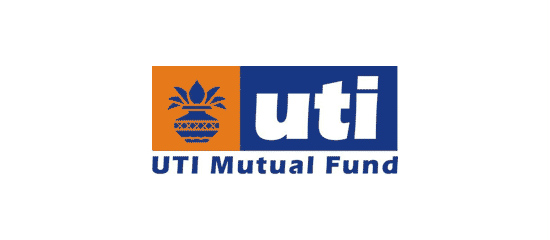Explore Mutual Funds
Curated list of mutual funds across asset classes and investment needs.
Start investing today for better tomorrow.

Recommended Funds
Best funds recommended across each category, based on our quantitative & qualitative research.
Save Tax
Invest In Tax Saving Funds (ELSS) And you can claim up to ₹ 1,50,000 as a deduction from your gross total income in a financial year under Section 80C of Income Tax Act, 1961. You could save Up To ₹ 45,000.
All Amcs
Browse through the list of all AMCs (Mutual Fund Companies).
Equity
Browse through the list of equity funds for investors seeking capital appreciation & growth.
Debt
Curated list of debt funds for investor seeking fixed income solutions.
Hybrid
Curated list of hybrid funds for investors seeking best of both equity & fixed income.
What are Mutual Funds?
A mutual fund is a common pool that brings together a group of people for investing their money to be taken care of by a professional Fund manager. The money collected in a common pool, thus, gets invested in stocks, bonds and other securities by the Fund manager, wherein each investor owns shares that represent a holding of the fund, depending on the amount invested by each investor. All mutual funds are registered with SEBI and they function in accordance to the provisions of strict regulations so as to protect the interests of the investor.
A mutual fund is one of the most feasible investment options for a common man as it provides an opportunity of investment in a diversified, professionally managed basket of securities at a relatively low cost.
Structure of Mutual Funds
A Mutual fund is constituted as a trust. It consists of four separate entities, namely sponsor, board of trustees, AMC, and custodian which are described in detail as follows:
Sponsor- Sponsor is the promoter of the mutual fund who brings in the capital and establishes a mutual fund trust and the AMC. Moreover, the sponsor is responsible for making an application for registration of the mutual fund and contributes atleast 40% of the net worth( ₹ 10 crores) of the AMC. In short, every mutual fund needs a sponsor before starting up its operations.
Board of Trustees- Sponsor appoints the board of trustees. The trustees are responsible for managing the mutual fund and protecting the interests of unit-holders. The role of trustee is to appoint a custodian for safe-keeping of assets and closely monitors the AMC. It is the duty of the MF Trustees to see that any new scheme introduced and/or managed by the AMC is in accordance with the trust deed and SEBI guidelines.
Asset Management Company(AMC)- Asset management company is appointed by the trustee, an investment manager of the mutual fund. The AMC seeks the approval from the Securities and Exchange Board of India (SEBI) for acting as an asset management company of the mutual fund. Atleast 50% of the directors of the AMC are independent directors who are not related with the sponsor in any manner. The AMC need to have a net worth of at least ₹ 10 crore at all times.
Custodian- A custodian is responsible for holding and safeguarding the securities owned by a mutual fund. A custodian is usually a trust company, bank or a similar financial institution, registered with SEBI, appointed by an AMC may also act as a transfer agent.
Advantages of Investing in Mutual Funds
Small investments: With mutual fund investments, you can spread your money in small fragments across different companies. This way you reap the benefits on your small investments.
Professional Management : Mutual funds employ the services of experienced and skilled professional fund managers. These fund managers use their investment expertise for analyzing the performance and prospects of various financial instruments before selecting a particular investment. By investing in mutual funds, investors avail the services of professional fund managers.
Diversification : Mutual funds invest across various industries and asset classes in order to diversify the risk.
Liquidity : Investors can redeem their units from the fund house any time, in case of their investment in open-ended scheme whereas in closed-ended schemes, one can buy and sell the units at the market value as the units are already listed on the stock exchange.
Flexibility: Investors have a choice of selecting any mutual fund scheme. With various plans, mutual funds have to offer such as regular investment, regular withdrawal and dividend reinvestment plans. Investors can invest or withdraw depending upon their preferences and convenience accordingly.
Cost-Effective: Since Mutual funds have a number of investors, the fund’s transaction costs and fund management fees get reduced to a considerable extent. Thus, owning to the benefits of larger scale, mutual funds are relatively less expensive than direct investment in the capital markets.
Choice : There are a variety of schemes offered by mutual funds. Investors can select those mutual fund schemes which suit their risk/return profile.
Tax benefits : Mutual funds also offer tax-saving instruments under its funds/schemes such as ELSS or equity linked saving schemes. Investments made in these schemes are entitled to income tax deductions.
Regulations : All the mutual funds are registered with SEBI in order to protect the interests of investors. They are regulated and monitored by the SEBI for safeguarding the rights of investors.
Easy Tracking of investments : It becomes difficult for investors to consistently review their investment portfolios. To simplify the procedure, mutual funds provide clear statements of all investments for easy accessibility of investors. Hybrid or balanced funds allow the investors to selectively choose both equity and debt funds at one go as per their preference.
SIP Options : Investors have the option to invest in small amounts on a continuous basis to reap the benefits of rupee cost averaging, possible only through Systematic Investment Plans. Investors with low-income levels can invest in SIP as low as ₹ 500.
Fund switching flexibility: Some of the mutual fund schemes offer the flexibility to investors to switch between schemes or funds for tapping better returns available on other schemes/funds.
Who can Invest in Mutual Funds in India?
Following are the entities eligible for mutual fund investments:
1. Residents including
- Resident Indian Individuals
- Indian Companies
- Indian Trusts / Charitable Institutions
- Banks
- Non-Banking Finance Companies
- Insurance Companies
- Provident Funds
2. Non-Residents including
- Non-resident Indians, and
- Other Corporate Bodies
3. Foreign entities, viz.
- Foreign Institutional Investors (FIIs) registered with SEBI.
Applying for Mutual Funds Online
Online transactions are on rising surge for many reasons as described below:
- Convenience : Accessibility of any mutual fund schemes from the comfort of one's own home or office.
- Easy to compare : Comparison of funds and schemes become easy when it is offered by the websites of numerous online financial service providers on a single-point portal.
- Inexpensive : The online mode saves time, is paperless along with having absolutely no travel cost.
- Independence: Investors have an easy access to all the required information online such as ready availability of Fact Sheet returns and ratings. This allow the misleading agents to escape from the route.
Types of Mutual Funds in India
Many of the different types of mutual funds have been categorized on the basis of asset class, structure and investment objective that has been described below:
Based on Asset Class
Equity Funds:
These funds invest only in stocks and provides high returns over a long-term. Equity funds have less tax liability in the long term as compared to debt funds.
Debt Funds:
These funds invest in debt-market instruments such as bonds, government securities, debentures and so on. These are comparatively stable investment than other equities.
Money Market Funds:
These schemes invest in short-term instruments like commercial paper, certificate of deposit, treasury bills and overnight money. These schemes are least volatile as compared to other schemes because they invest in money market instruments with short-term maturities.
Balanced or Hybrid Funds:
These funds invest in a mixed combination of asset classes such as equity and debt. There are some hybrid funds where the proportion of equity is higher than debt while in other schemes it is far way different. The main aim of hybrid funds is to suitably balance the risk and returns.
Sector Funds:
These schemes restrict their investment in one or more predefined sectors e.g. technology sector, infrastructure sector and so on. Since their performance is dependent upon one particular type of sector, they provide less amount of diversification and are considered to be risky.
Index Funds:
Index funds are those funds which invest in instruments representing a specific index on an exchange so as to reflect the movement and returns of the index. e.g. buying shares replicating of the BSE Sensex.
Tax-Saving Funds:
These funds make a major investment in equity shares. Investments made in these funds are entitled to deductions as per Income Tax Act . They are considered highly-risky but also provide high returns on the better performance of the fund.
Fund of funds:
A mutual fund scheme which invests in other mutual funds, designed to accommodate the varying needs of different categories of investors based on their risk profiles, return expectations, and investment goals. By investing in Fund of Funds, investors can derive the benefits of diversification across various fund categories. e.g. Gold Funds leveraging the performance from Gold exchange traded fund.
Based on Structure
Open-Ended Funds:
These are the funds without any fixed maturity period. Investors can buy or sell units at prevailing NAV from and to the mutual fund, on any business day throughout the year. Open-ended funds are considered by the investors as they provide a high degree of liquidity.
Closed Ended Funds:
These are the funds with fixed maturity periods. Investors can buy these funds only during their initial offer period. After that period, units can be redeemed at their fixed maturity date. Investors in need of liquidity can buy-or- sell already issued units of the scheme on the stock exchanges where they are listed.
Based on Investment Objective
Growth Funds:
A growth fund is a type of mutual fund that invests primarily in those stocks which provide capital appreciation. They are considered to be risky funds and are suited for the investors with a long-term investment horizon.
Income Funds:
These are the funds, where money is invested predominantly in fixed income security such as bonds, debentures etc. with an objective of providing capital protection and continual income to investors.
Liquid Funds:
These are the funds which invest predominantly in short-term or very short-term instruments with a residual maturity of upto 91 days such as T-Bills, CPs etc. They provide high liquidity with moderate returns and are suited for investors with short-term investment horizon.
DISCLAIMER - Mutual Fund investments are subject to market risks. Please read all the scheme related documents carefully before investing.















